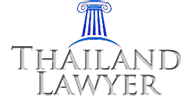Legally owning a property, that is registering it on freehold under your own name, perhaps gives you the most secured feeling. After all, freehold ownership provides you with the rights only afforded to property owners under this structure.
However, not all property types are allowed to be purchased, registered and owned on freehold by a foreign individual in Thailand. In fact, speaking on general sense, expatriates are barred to own land in the Kingdom and the only type of property he can own and registered on freehold is a condominium. Yet, even this is subject to certain requisites to make it legally feasible and acceptable under Thai laws.
Condos
As stated earlier, a foreigner can purchase a condominium and register under his own name a condo unit on freehold.
Aside from the immigration requisites as well as the financial aspect of condo ownership, the buyer must first see to it that foreign ownership of the whole condo building, on which a unit he is planning to buy, must not yet reach the 49% foreign-ownership cap.
For example: if it is a 100-unit condo building, foreign ownership can only make up a total of 49 units. If the expat’s purchase will make breach the cap of 49%, he will not be allowed to buy a unit.
Through a Limited Company
An expatriate like you can opt on establishing a Thai limited company for the purpose of purchasing and owning a land in Thailand. But, the company needs to be majority or 51% owned by Thais and these Thai shareholders must have the necessary financial capacity to own such shares otherwise the said Thai shareholders will be deem and be treated by law as Thai Nominees, entities prohibited under law.
If indeed your Thai limited company has been established legally, it must function accordingly and the land that will be bought through it must be owned by the company and not you.
Lease
Leasing is among the best options there is for an expat who is looking for a property to acquire and call it a home for a good time of his life in Thailand even if the land cannot be owned by the him.
Even if it is relatively easy to lease a property (you can lease a land or a building), the time is limited as the maximum lease period is 30 years.
If the expat is leasing the property for more than three (3) years then he is ought to register the said transaction at the Land Office.
Another important thing to remember with leasing a property in Thailand is that there is no such thing as 30+30+30 collective lease structure or the 90 year lease structure utilize in the Kingdom.
Some agents or firms may propose this so called long term lease period to you and in case you are being offered with it, make sure that you will decline it.
As pointed out earlier, the maximum lease period is 30 years. Although you can insert an option to renew clause in your lease contract with the property owner, the said renewal will not be automatic as it will still be a subject to another round of review and scrutiny the an official at the Land Office.

